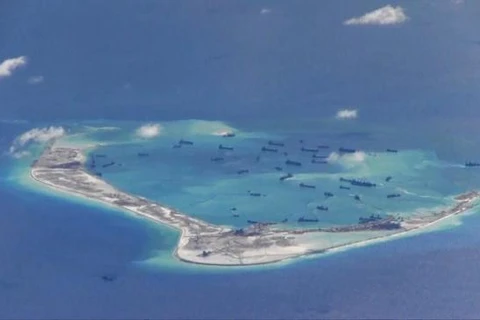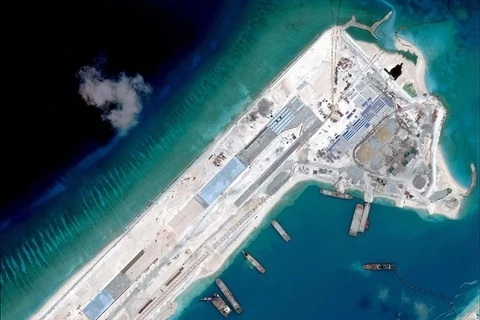Berlin (VNA) – The recent ruling of the Permanent Court of Arbitration (PCA) on the Philippines’ lawsuit against China’s claims in the East Sea is a binding interpretation of the 1982 UN Convention on the Law of the Sea (UNCLOS). Legally, each UNCLOS member country must recognise the ruling.
The viewpoint was presented by Dr. Gerhard Will, a senior German expert on international political affairs and a former expert of the German Institute for International and Security Affairs during an interview with the Vietnam News Agency on July 15.
The court ruled that China’s territorial claims in the East Sea run counter to the convention, Will said.
The PCA’s task is not to propose a solution to the East Sea disputes but interpret international law regarding the disputes in the waters, he explained.
The expert stressed that although the ruling may not prove its direct and prompt effectiveness, it will affect behaviors of relevant parties, including China, indirectly.
It’s noteworthy that the parties concerned did not use the ruling to defend their position in an extreme manner but called for the peaceful settlement of the disputes, he told the reporters.
According to him, China’s economy is interdependent on the country’s observance of international law and order, including the order at sea and international maritime transport routes.
The country’s prestige mainly depends on whether or not it could reach a consensus with other relevant countries in the East Sea on development cooperation and conflict settlement, he stated.
On July 12, the PCA issued the ruling on the case brought by the Philippines against China’s nine-dash line claim in the East Sea, saying China’s claims to historic rights for waters within the nine-dash line are contrary to the 1982 United Nations Convention on the Law of the Sea.
The Hague Tribunal also finds no legal basis for China to claim historic rights to resources within the nine-dash line.
The country has no historic title over waters of the East Sea. At the same time, China has caused permanent and irreparable harm to the coral reef ecosystem at Truong Sa archipelago, the court said.-VNA

























